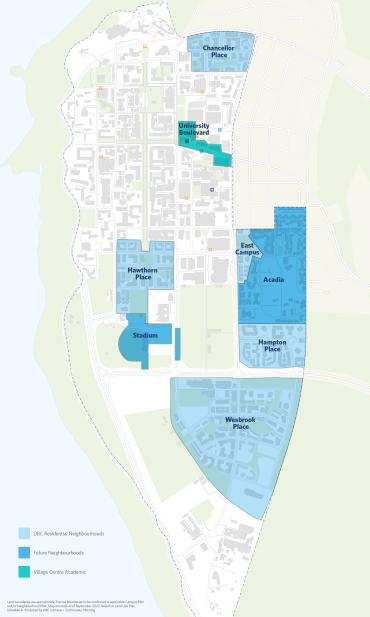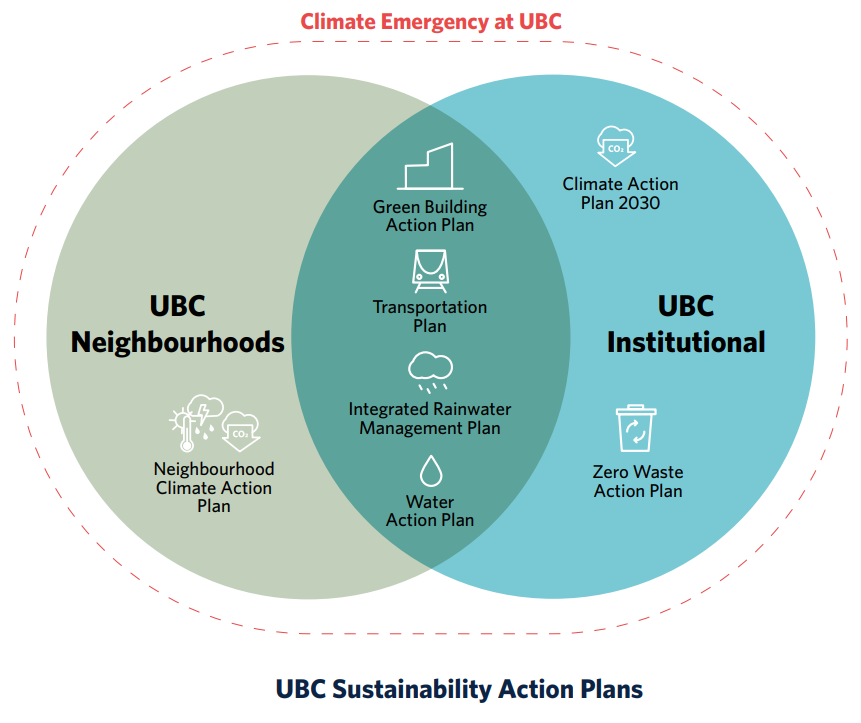
Over 15,000 residents live in UBC’s campus neighbourhoods – vibrant and diverse communities, home to a growing number of families, students, faculty and staff. Through compact design and high standards for green building performance, UBC’s neighbourhoods achieve significantly lower GHG emissions than the regional averages.
In spite of local progress, global greenhouse gas emissions continue to grow and the effects of climate change are being felt by those living in UBC’s campus neighbourhoods – from extreme heat and heavy precipitation to poor air quality from wildfires. With the far-reaching global impacts and disruptions brought by climate change and the increased intensity and frequency of these climate events over the last decade, updating the climate action plan for UBC’s neighbourhoods is critical.
As the university plans for growth and with the increased intensity and frequency of local climate events brought on by the current climate crisis, NCAP identifies the additional immediate and long-term actions needed to continue progress on reducing greenhouse gas emissions in the neighbourhoods and to prepare as well as adapt for the impacts of a changing climate.
Community Emissions and Climate Projections
Emission Sources in UBC's Neighbourhoods
Greenhouse gas emissions from buildings are the largest source of community emissions, followed by emissions from resident vehicle travel and direct emissions from waste at the landfill.
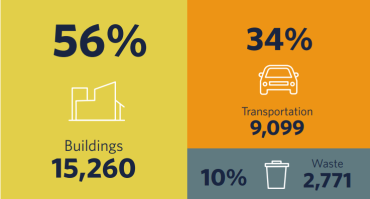
Targets
NCAP has set the following community emissions targets:
- By 2030: Reduce community emissions by 30% (vs 2022 levels)
- By 2050: Reduce community emissions by 100%
How we'll get there
Without additional climate action, the associated community emissions are expected to also grow by 35% from 2022 to 2050 (as shown in the ‘business-as-usual’ in the graph below). Ambitious and rapid action across all sectors is needed to achieve net-zero emissions. NCAP defines the pathway to achieve net-zero emissions by 2050, with contributions from each sector.
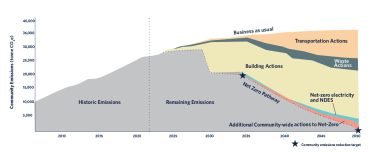
Climate Projections
Climate projections for the UBC Vancouver campus and neighbourhoods show significant changes are expected and will include gradual changes to average conditions, as well as an increase in extreme weather events.
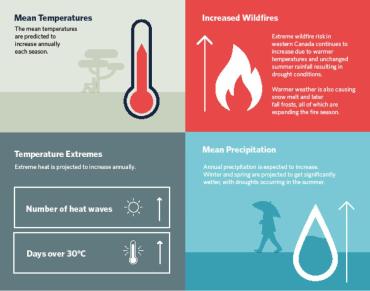
Context
UBC is uniquely positioned to lead rapid climate action and model sustainable development in the university’s residential neighbourhoods and beyond by using its intellectual capacity to develop innovative approaches that address climate change through strong collaborations between academic researchers, operational staff and partnerships with government, utilities, industry and non-governmental organizations. With UBC’s Declaration on the Climate Emergency in December 2019 and subsequent update to the institutional Climate Action Plan, the university has shown both academic and operational leadership in mobilizing the community to confront the climate crisis.
